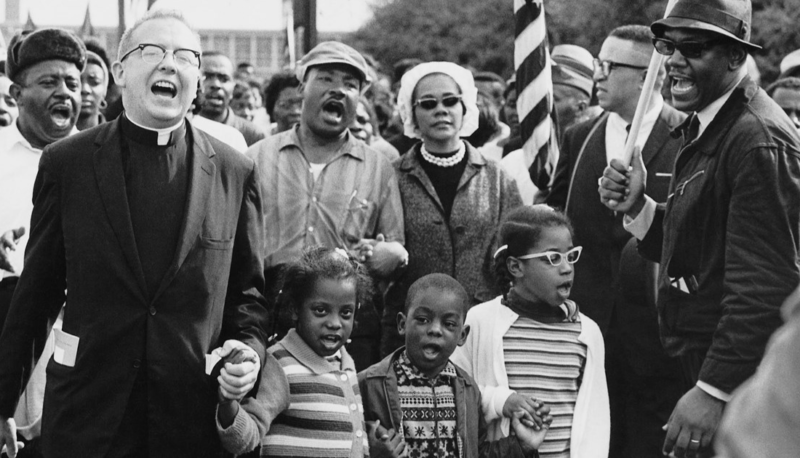The Original Voting Rights Act’s Signing
President Lyndon Johnson signed the Voting Rights Act into law on August 6, 1965, outlawing the many discriminatory practices that had been adopted after the Civil War to prevent formerly enslaved people and their descendants from meaningfully participating in American civic life.
This monumental piece of legislation, perhaps unparalleled in its impact in addressing the racial oppression in our democracy over the past century, came as a result of years of tireless organizing by citizens and civil rights leaders alike. In particular, this movement gathered an incredible amount of momentum in the final months leading up to President Johnson’s bill signing.
How the 1965 March Changed History
Among the major milestones that enabled this historic legislative victory were the 1965 Marches from Selma to Montgomery, led by Rev. Dr. Martin Luther King Jr., a young John Lewis, and other civil rights luminaries. On March 25, 1965, 57 years ago to the day of this writing, thousands of marchers arrived in the state capital of Montgomery, Alabama. Over the previous five days, Dr. King had led a march of 54 miles from Selma, Alabama, where on March 7, police had attacked peaceful marchers crossing the Edmund Pettus bridge. This day became a flashpoint in the civil rights movement and will forever be remembered as “Bloody Sunday”.
These marches, and the widespread media coverage that they generated, fueled the massive surge of interest and support for voting rights that was needed to spur President Johnson, Congress and other key power brokers of the time to take action, resulting in final passage of the Voting Rights Act just a few months later.
Why the History Matters
As we continue to push forward with the effort to pass the transformative pro-democracy legislation needed to meet the moment and our current set of challenges, with ongoing attacks on our democracy coming in the form of hundreds of voter suppression bills in states across the country, looking to history can provide inspiration to keep pushing on toward victory.
After coming up two votes short in the Senate on a rules change needed to pass the John R. Lewis: Freedom to Vote Act, we remain committed. Standing on the shoulders of civil rights legends, who moved mountains to get us where we are now, we have the responsibility to continue to serve as the spark needed to keep the dream alive. We will not be discouraged as we strategize on how to win the next chapter in the ongoing quest for true political equality in this country.

